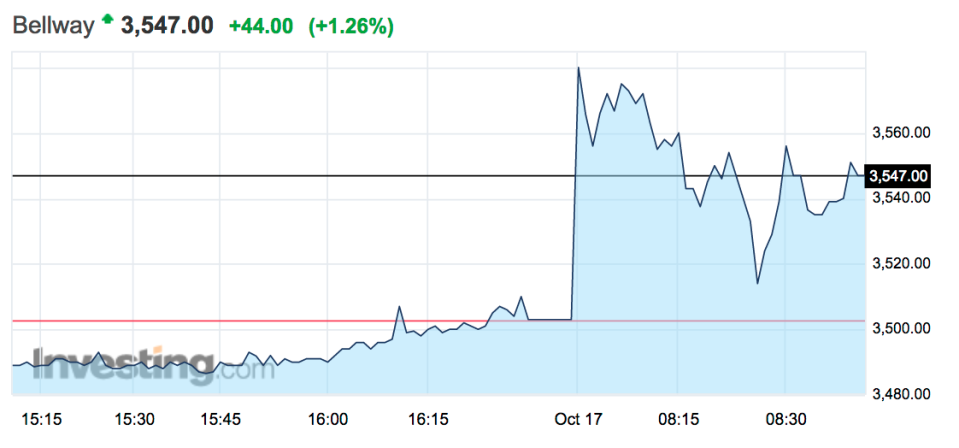A lack of bricklayers and scaffolders is holding back Britain's construction sector — and Brexit could make it even worse

REUTERS/Eddie Keogh
LONDON — Housebuilders in the UK are struggling to recruit the talent needed to build significant numbers of homes, holding back the country's construction sector.
On Tuesday, homebuilder Bellway released its preliminary results for the 2016=2017 financial year, putting in a solid showing with increased revenues, profits and operating margins from the previous financial year.
Buried within the results, however, was some bad news for the construction sector as a whole.
"Growth in output in the construction sector and the wider industry skills shortage continued to place upward pressure on sub-contractor costs, particularly for trades such as bricklayers and scaffolders," Bellway said.
The lack of skilled workers is pushing up the wages they are able to demand, impacting the profitability of companies, and most importantly, limiting the number of homes that can be built.
"The skills shortage facing the entire construction sector is a moderator to the industry's overall ability to deliver growth," Bellway said.
Things could get even worse should post-Brexit immigration controls limit the number of workers from overseas — a key recruiting ground for the construction sector — coming to the UK. There is however, no evidence of that so far, Bellway said.
"Whilst there is some reliance upon overseas labour, predominantly in the south east and London, there is no evidence that this valuable resource has diminished as negotiations to leave the EU progress."
Britain's construction sector has struggled to gain momentum in the year and a quarter since the Brexit referendum, with the sector seeing a recession late in 2016. It now looks to heading for another recession, if IHS Markit's widely respected PMI survey of the sector is to be believed.
Bellway's results were broadly positive, with highlights including:
Gross profits of £661.6 million, up from £574.8 million last year.
Revenues of £2.56 billion, up from £2.24 billion in 2016.
A proposed dividend for shareholders of £1.22 per share, up from £1.08.
Shares jumped at the open, before pulling back slightly. Here's the chart as of 8.40 a.m. BST (3.40 a.m. ET):

Investing.com
NOW WATCH: Is bitcoin a bubble or the future of everything?
See Also:
SEE ALSO: A shortage of 'desperately needed' EU workers is making it harder for British firms to find staff

 Yahoo News
Yahoo News 

